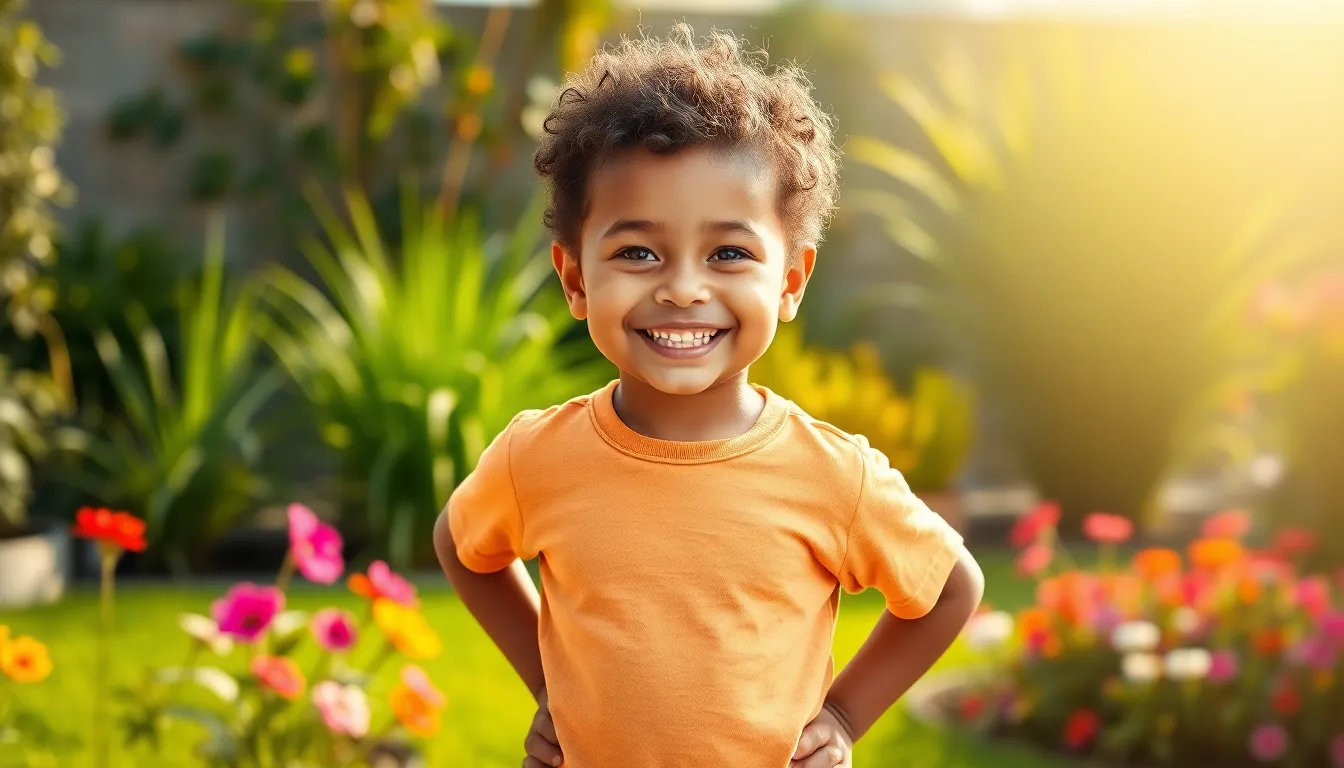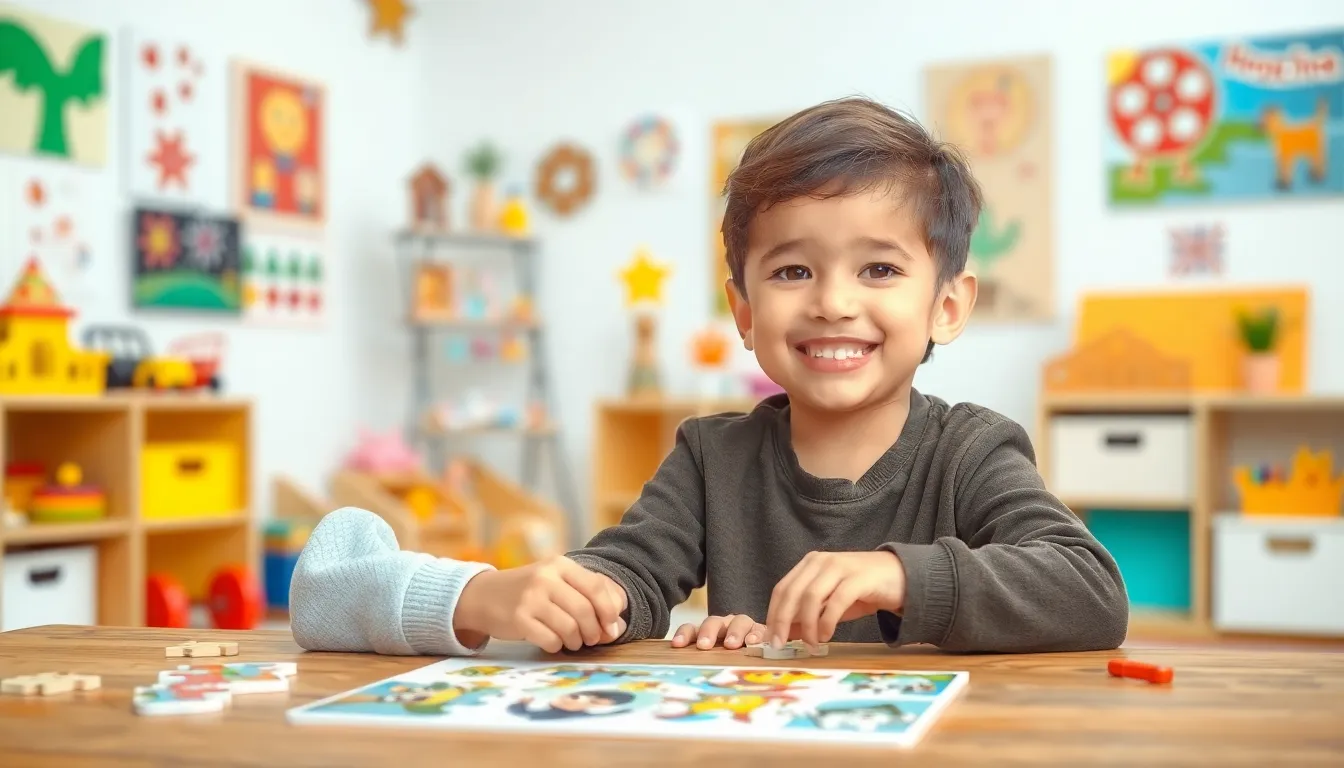Every parent dreams of raising a confident, self-assured child who can tackle life’s challenges with a smile. But let’s face it—kids can be their own worst critics. One moment they’re convinced they can conquer the world, and the next, they’re hiding under the bed because they think they can’t even conquer a math quiz. The rollercoaster of childhood self-esteem is real, but there’s hope!
Table of Contents
ToggleUnderstanding Self-Esteem in Children
Self-esteem plays a crucial role in childhood development. It influences how children perceive themselves and interact with the world around them.
What Is Self-Esteem?
Self-esteem refers to an individual’s evaluation of their worth. It encompasses feelings of confidence and self-acceptance. This assessment can vary; children might feel pride in their accomplishments one day and doubt their abilities the next. Understanding this fluid nature helps parents address concerns effectively. Healthy self-esteem stems from positive experiences and support, guiding children in forming their identities.
The Importance of Self-Esteem for Kids
Self-esteem directly impacts various aspects of a child’s life. High self-esteem fosters resilience, enabling children to face challenges without fear. It influences relationships and decision-making. Positive self-image encourages children to engage in new experiences. Moreover, self-esteem contributes to emotional well-being, reducing anxiety and depression risks. Recognizing this importance equips parents with the tools to support their children’s growth and development.
Strategies for Boosting Self-Esteem in Kids


Building self-esteem in kids requires consistent strategies. Implementing effective methods can greatly enhance children’s confidence and emotional well-being.
Encouraging Positive Self-Talk
Promoting positive self-talk influences how children perceive themselves. Teaching kids to replace negative thoughts with affirmations fosters a healthier self-image. For example, when faced with challenges, encouraging phrases like “I can do this” reinforces resilience. Supportive parents can model positive language and highlight personal strengths, making a significant difference in children’s self-assessment. By practicing self-encouragement regularly, kids internalize this behavior, leading to improved self-esteem.
Promoting Independence and Responsibility
Fostering independence shapes children’s self-esteem positively. Assigning age-appropriate tasks allows kids to experience success on their own. Completing chores or managing small projects empowers them, creating a sense of accomplishment. Parents can encourage decision-making in safe environments, enhancing confidence in their choices. As children take on responsibilities, their self-worth grows along with their ability to navigate challenges, solidifying their belief in personal competence.
Activities to Boost Kids’ Self-Esteem
Engaging in various activities can significantly enhance kids’ self-esteem. Activities that promote creativity and physical engagement provide kids with opportunities for expression and accomplishment.
Creative Expression and Arts
Exploring creativity through art fosters self-esteem. Engaging in drawing, painting, or crafting helps kids express feelings and thoughts. These creative outlets also encourage experimentation and reduce fear of failure. Additionally, showcasing their work boosts pride and confidence. Participating in drama or music allows kids to explore their talents and connect with peers. Exposure to diverse art forms instills a sense of achievement. Kids learn to value their unique perspectives through creative expression.
Sports and Physical Activities
Involvement in sports builds physical skills and self-confidence. Sports teach teamwork, discipline, and resilience. Regular participation, whether in soccer, basketball, or gymnastics, accelerates personal growth. Children feel a sense of accomplishment as they achieve goals like scoring or mastering new skills. Improvement in physical fitness also contributes to overall well-being. Sports promote friendships and a sense of community. These connections can help reduce feelings of isolation and boost self-worth. Encouraging exploration of various physical activities ensures children find what they enjoy and excel at.
Role of Parents and Educators
Parents and educators significantly influence children’s self-esteem. Their guidance shapes kids’ perceptions of themselves and their abilities.
Creating a Supportive Environment
Creating a supportive environment nurtures confidence. Parents can provide emotional support by actively listening, validating feelings, and encouraging open dialogue. Educators foster inclusivity through collaborative classroom activities that celebrate individuality. Establishing routines also gives children stability, promoting a sense of security. A well-lit and organized learning space enhances focus and engagement, bolstering self-assurance. Celebrating small achievements reinforces a child’s sense of worth, making them feel valued.
Reinforcing Positive Behaviors
Reinforcing positive behaviors cultivates self-esteem in children. Parents can offer praise when kids demonstrate effort and perseverance, highlighting the value of hard work. Educators can create reward systems that recognize individual accomplishments, fostering motivation. Constructive feedback guides improvement while encouraging a growth mindset. Modeling positive self-talk shapes children’s internal dialogues, helping them recognize their potential. Adults can promote resilience by framing failures as learning opportunities, instilling confidence to try again.
Boosting self-esteem in kids is a vital aspect of their development. By implementing effective strategies and providing support, parents and educators can nurture children’s confidence. Engaging in creative activities and physical pursuits not only enhances their skills but also fosters a sense of achievement.
Creating a supportive environment where children feel valued and heard is essential for their emotional well-being. By reinforcing positive behaviors and encouraging resilience, adults can help children navigate challenges with confidence. Ultimately, investing in children’s self-esteem lays the foundation for a brighter future, empowering them to thrive in various aspects of life.




